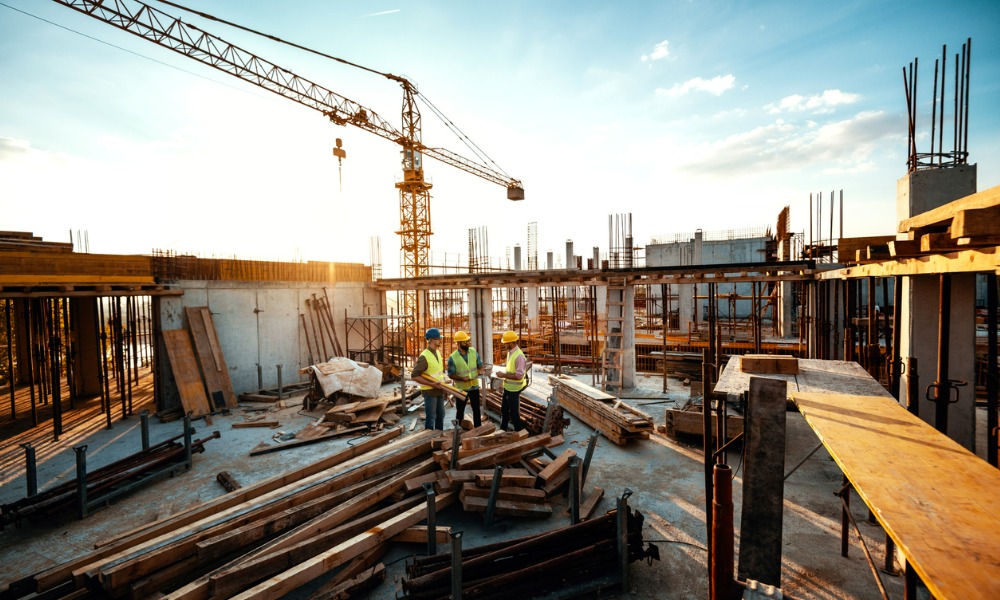Construction and infrastructure are important sectors for our economy. It takes a lot of energy and resources to complete one project, and its impact is far-reaching. These projects can greatly affect the success of other industries.
This is why conflicts during a construction project can be very disruptive. Fortunately, there are ways to address these issues. In this article, we’ll discuss how to resolve construction disputes in Canada. We’ll also go over how this compares to other methods such as going to court.
What are the common areas of construction disputes?
Construction disputes are complex; they may involve several parties, and one dispute might be linked to other issues. Some examples of these construction disputes include:
- payment: delay or non-payment of contractors or sub-contractors, holdbacks, set offs, or liens
- delay: changes in the project completion and turnover, or delays in the delivery of materials
- design: disputes on the planned design versus the constructed project, or subpar quality of the turned over project
Recently, amendments to provincial legislation impacted how these disputes are being resolved. Since then, prompt payment legislation has been introduced in Canada and in several provinces. This also includes the recognition of the role of adjudication in resolving payment disputes.
Watch this video if you want to learn more about adjudication:
Talk to the Lexpert-ranked best construction lawyers in Canada to learn more about adjudication and other alternatives on how to resolve construction disputes.
What are the laws on how to resolve construction disputes?
The methods on how to resolve construction disputes can be enforced in two ways:
- provincial and federal construction laws: provide for the prompt payment scheme among parties in a construction project and a system of adjudication to address conflicts
- contract between the disputing parties: construction and infrastructure contracts must comply with these construction laws, which may even enhance the solutions proposed by the law
Provincial amendments to construction laws
Here’s how these provincial laws evolved over the years to include this prompt payment and adjudication regime for construction disputes:
|
Provincial Construction Laws |
||
|
Province |
Statute |
Royal Assent / came into force |
|
August 29, 2022 |
||
|
Construction Act (formerly the Construction Lien Act) |
October 1, 2019, as for prompt payment and adjudication |
|
|
Builders' Lien Act (amended) |
April 12, 2019 |
|
|
Construction Remedies Act |
December 18, 2020 |
|
|
An Act to facilitate oversight of public bodies’ contracts and to establish the Autorité des marchés publics |
December 2017 |
|
|
The Builders’ Liens Amendment Act (Prompt Payment) |
May 30, 2023 |
|
|
The Builders’ Lien (Prompt Payment) Amendment Act, 2019 |
March 1, 2022 |
|
In most cases, these laws amended the province’s existing construction laws:
- to introduce the prompt payment and adjudication regime, and
- to establish or appoint an adjudicating authority
What are the methods to resolve construction disputes in Canada?
Otherwise called as alternative dispute resolution methods, there are four methods which parties can resort to in resolving construction disputes before they go to court:
- negotiation
- adjudication
- mediation
- arbitration
The goal is for parties to reach an amicable settlement (or an arbitral award in case of arbitration). These methods tend to be faster and cheaper compared to litigation. This is important for construction projects — for issues to be resolved quickly, along with the project in dispute.
Steps in alternative dispute resolution in construction
Today’s dispute resolution clauses encourage the parties to the contract to amicably attempt to resolve their disputes without litigation, said Stuart Hankinson, a construction and infrastructure law partner at Singleton Urquhart Reynolds Vogel LLP in Vancouver.
Senior members of the contracting parties not involved in the dispute's creation are encouraged to sit down in a boardroom to negotiate a resolution. If that doesn’t work, a commonly appointed mediator may be chosen to start mediation. “If that doesn’t work, then you try perhaps another mediator, and some [contracts] have dual mediator provisions. And then if that doesn’t work, you’re off to either a private arbitration or a court setting.”
That type of clause wouldn’t have been seen in a 1995 contract, Hankinson said; not “that emphasis on amicable negotiations between parties. It’s a very strongly held policy now; it was non-existent 25 years ago.”
John Martens, a partner in MLT Aikins LLP’s Winnipeg office, saw disputes being resolved early on in larger infrastructure projects. On some larger Crown projects, there is a process where a dispute starts with mediation and can work up to arbitration, which he said worked well.
“This is consistent with the new forms of contracts that we’re seeing: to have that attempt to have early resolution, followed by arbitration,” Martens said.
Adjudication as an emerging method of resolving construction disputes
Adjudication is a statutory dispute resolution method mandated by provincial construction laws. It is an initial step to resolve conflicts before going to mediation, then to arbitration. As these are required by provincial construction laws, a construction contract cannot prevent parties from first adjudicating their disputes.
The system of adjudication is exercised by the bodies as established or named by the provincial construction laws. For instance:
- federal: Canada Dispute Adjudication for Construction Contracts (CanDACC)
- Ontario: Ontario Dispute Adjudication for Construction Contracts (ODACC)
- Saskatchewan: Saskatchewan Construction Dispute Resolution Office (SCDRO)
Other adjudication authorities are also appointed in other jurisdictions, which may also appoint adjudicators for the clashing parties.
These provincial construction laws may also include specific subject matters that can only be submitted for adjudication. Unless agreed by the parties and the appointed adjudicator, an adjudication may only address a single matter.
Learn more about resolving construction disputes by reaching out to the best infrastructure lawyers in Canada as ranked by Lexpert.





